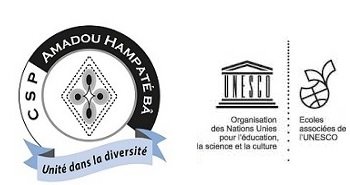Future of Nigerien students lie with teachers or tutors?
Private lessons are growing considerably in Niamey. All families who can afford it pay for tutors. What is this phenomenon due to? Is it because within our schools there is no recourse for students who have difficulty learning? If the student who has not understood his lesson, the student who wants to have his work reread, the student who wants a formula explained to him again, does not find recourse within his school, it is It is inevitably outside that this recourse will develop.
Private lessons can help students learn better and teachers to make ends meet. A formula that could therefore be described as “win-win”. But, on closer inspection, we see that the reality is much more nuanced.
The growth of private lessons is fueled by all social classes… with the exception of the most deprived. The latter are doubly penalized. They can neither get help from their illiterate parents nor afford private lessons. And we see that private lessons are increasingly established not as a one-off recourse for a student who has been left behind in a particular subject but rather as an additional school. Many families feel obligated to invest in private lessons because their children's teachers emphasize the benefits of this type of support. This focus on external support pushes the question of practices during normal school time into the background. Can we really reduce academic failure by increasing the number of private lessons after school, without leading a debate on the motivation, quality and training of teachers, as well as the real effectiveness of their work accomplished during class hours?
Private academic support often boils down to a simple repetition of content transmitted in class. Is this recovery enough for the child to really learn? A child's academic difficulties can be due to several factors: shortcomings, psychological situations, a relationship with erroneous knowledge, ignorance of learning strategies, etc. These difficulties require intervention and a different approach on the part of the tutor who must do something else. thing to have the student repeat a lesson! Work on learning methods (learning to learn), for example, is one of the conditions for success for many students. Few repeaters offer these methods. Under pressure from parents, they teach only to improve grades and emphasize rote and repetition rather than true understanding.
One of the essential goals of successful education is to make students autonomous. We must not lose sight of the fact that success means learning to do without help. Do the private lessons that are provided today go in this direction or rather in the diametrically opposite direction?
Furthermore, and let's not hide our faces, given the relatively low level of salaries, the primary concern of teachers is to earn as much additional income as possible. Consequently, the quantity of their private lessons often takes precedence over the quality of these same lessons. This then raises not only the question of the modality and quality of private lessons but also the quality and modality of classroom lessons. Isn't the additional work of teachers, which allows them to “redden the sauce” as they say, done to the detriment of their main work within the institution?
Normally, a good teacher must devote part of his “free” hours to preparing his lessons, improving his teaching methods and updating his knowledge. How many of our teachers can tackle these tasks if they have x hours of private lessons to provide? Teachers often oppose any proposal or innovation that impacts their private lessons and the time they spend on them. And this is where we enter the following vicious circle: lessons poorly prepared by teachers leading to lessons poorly understood by students who, finding no recourse at school, seek external support, where the increase in demand for private lessons which in turn influences the quality of lessons provided at school.
An increase in teachers' salaries will not change this situation much. As long as the demand for private support exists, they will always be tempted to double their salary by providing private lessons.
The main fuel for this demand remains the inability of our schools to fulfill their missions: poorly trained teachers, no internal support systems and the lack of attention paid to students in difficulty. If private lessons can be in small doses complementary to the school which currently does not manage to absorb academic failure, they are in large doses competitors.
We must therefore think about putting in place recourses within the school, so that students and their families do not seek outside what the school does not give them within.
April 12, 2014
